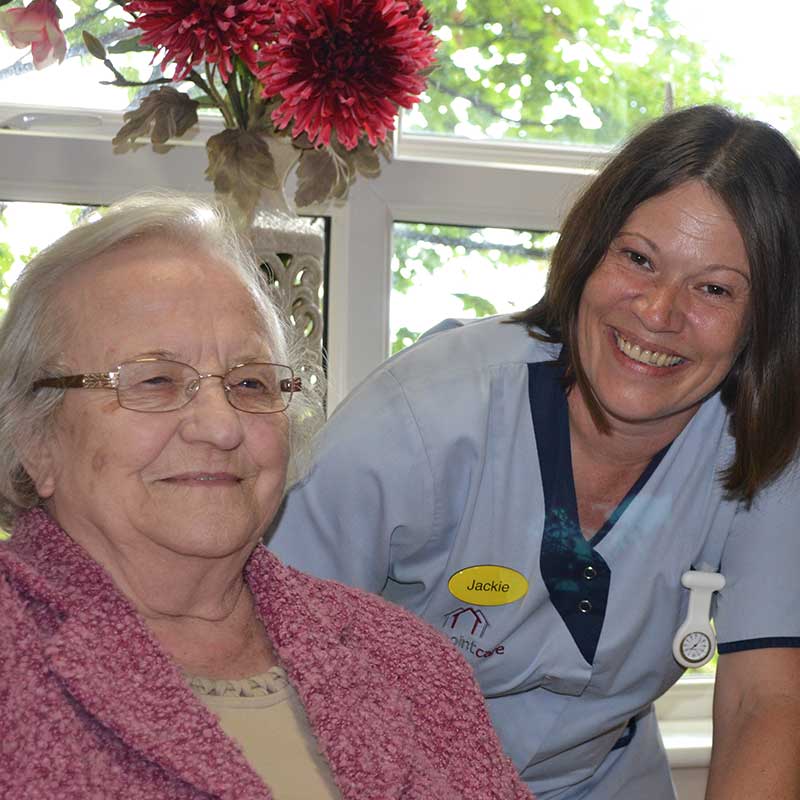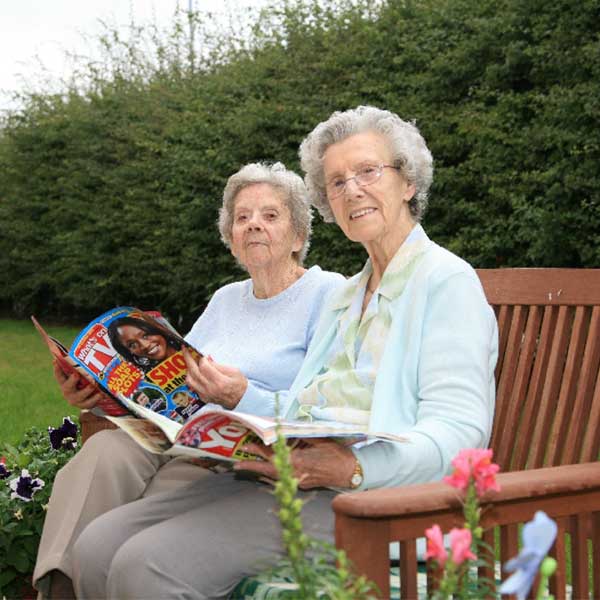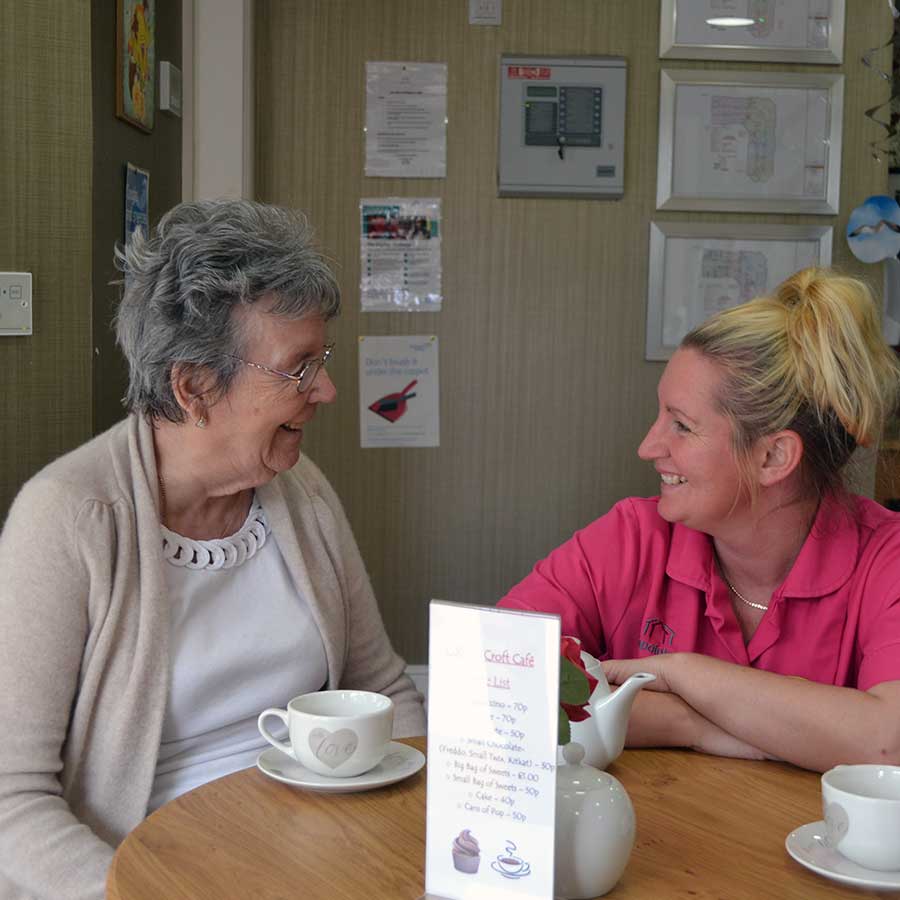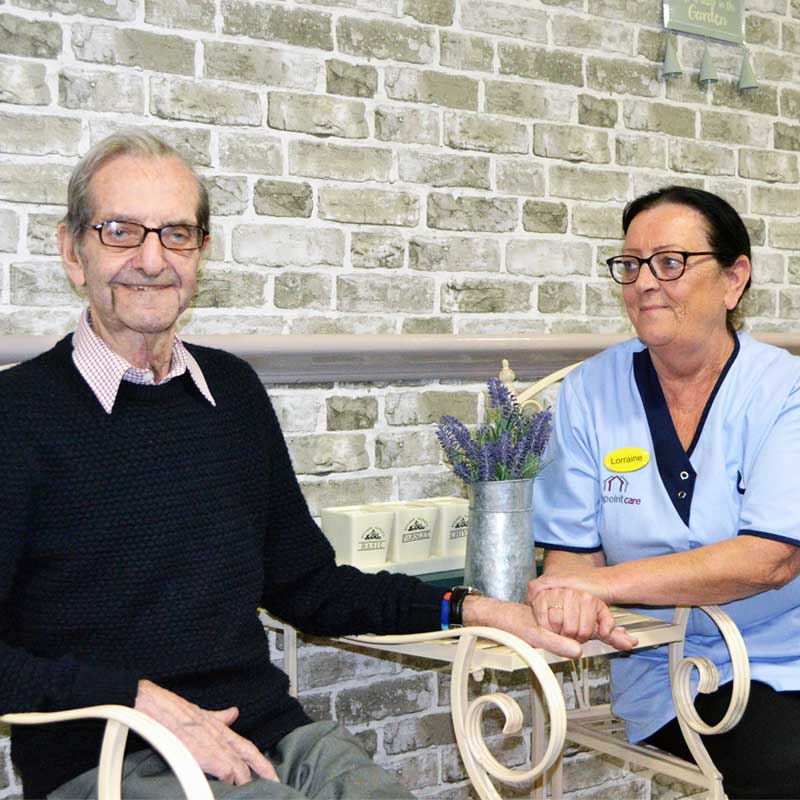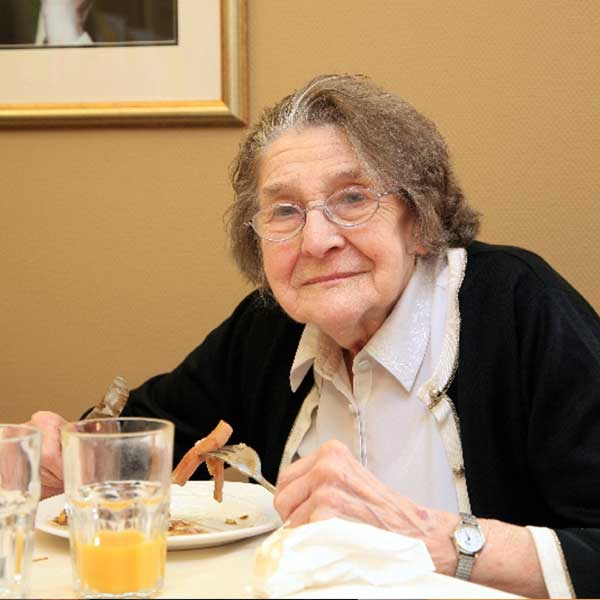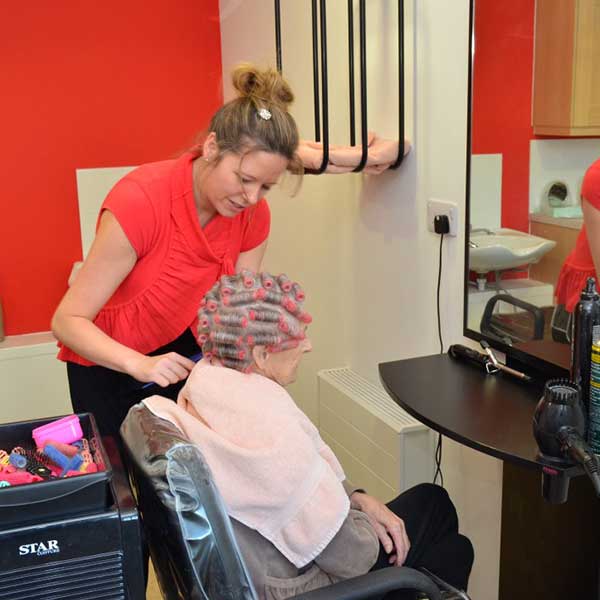Dementia care at Highpoint Care
Highpoint Care is a set of purpose-built elderly residential care homes, where we offer specialised support – including facilities and care for those with dementia-related illnesses. Our aim is to provide the highest standard of care in stunning, luxury accommodation where all our residents’ needs are met in a comfortable, happy, and above all safe environment.
What is dementia?
The word “dementia” describes a set of symptoms associated with an ongoing decline in brain function. There are several forms of dementia, with different causes, which are most common in older age. On this page, we will go through the basics of dementia and the related care that Highpoint can provide.
